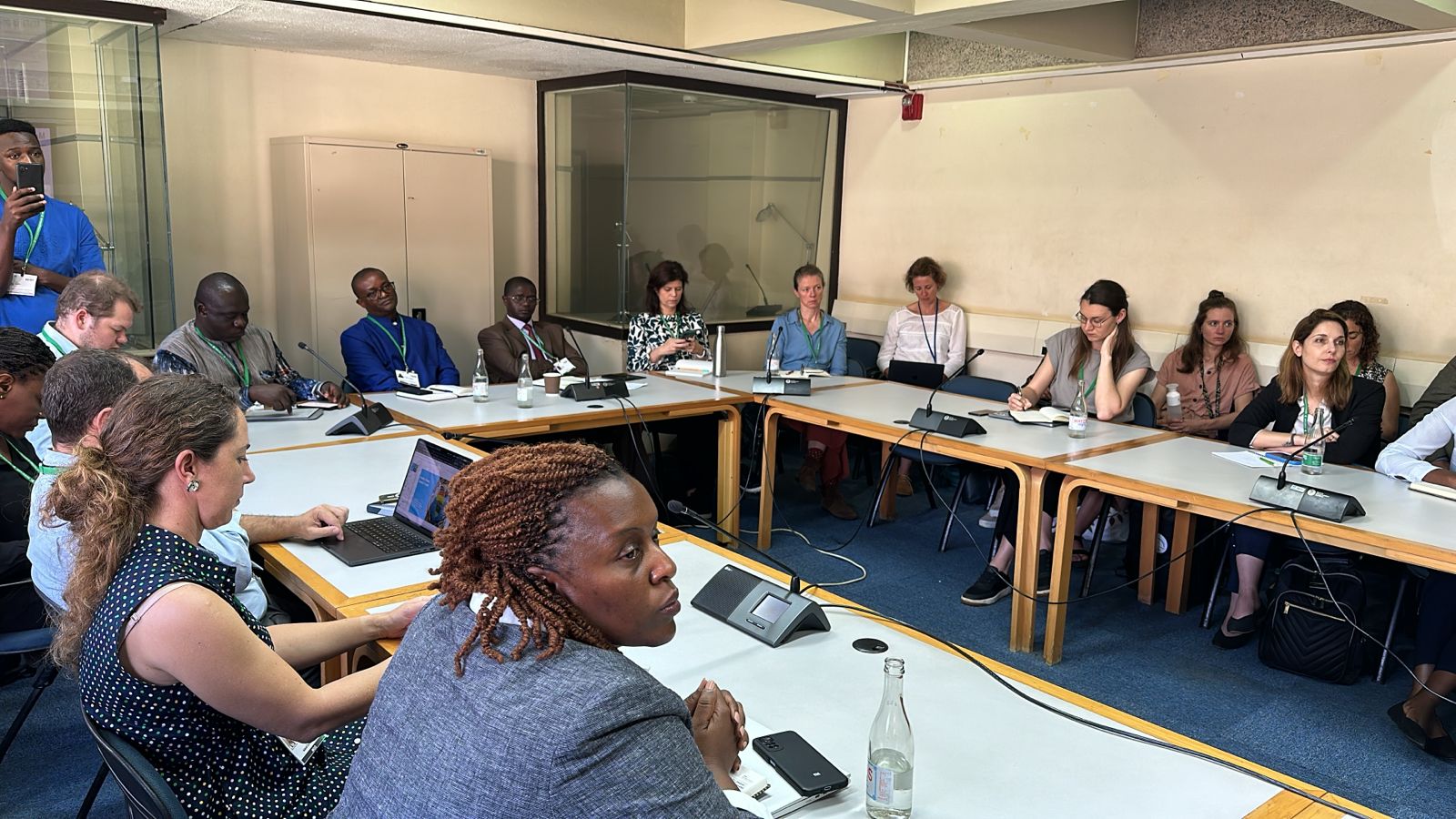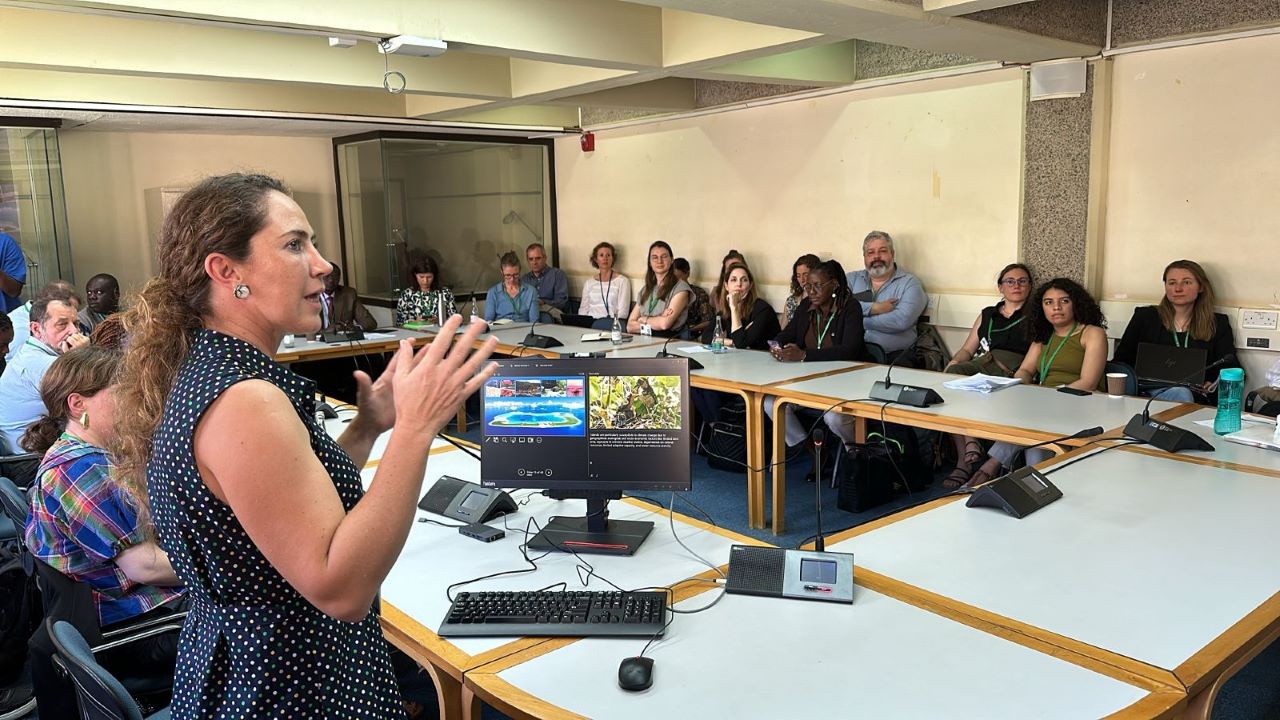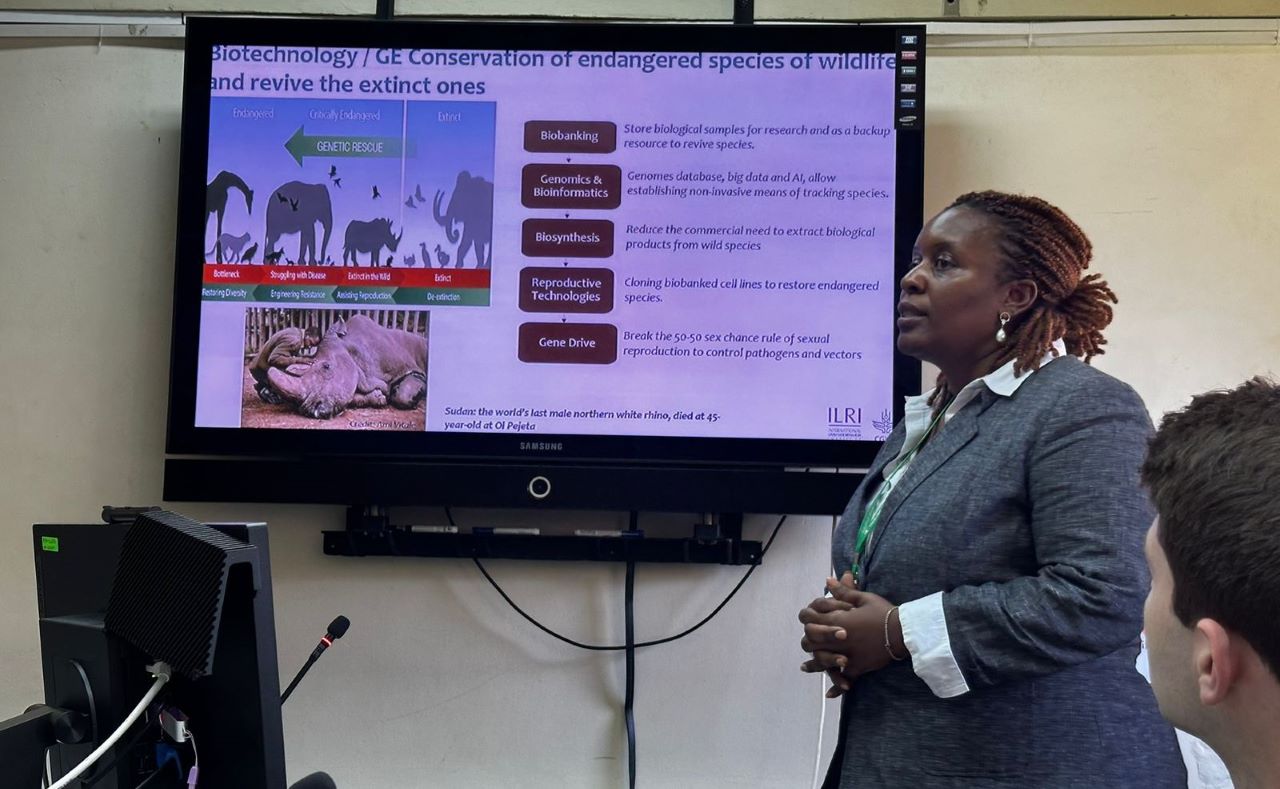The Outreach Network for Gene Drive Research recently co-hosted a side-event at the Convention on Biological Diversity’s 26th meeting of the Subsidiary Body on Scientific, Technical, and Technological Advice (SBSTTA-26) in Nairobi, Kenya. The event, held in partnership with the Chilean Ministry of the Environment, explored how innovative approaches and collaborative multidisciplinary efforts could be mobilized to address the current biodiversity and health crises in the face of growing challenges posed by climate change.

Participants attend the event “Exploring Innovative Approaches for Biodiversity Conservation and Health” on the side of SBSTTA-26 meetings in Nairobi, Kenya
I had the honor of moderating the session, which featured expert speakers Delphine Thizy, Team Zero Malaria, Carolina Torres, Island Conservation, and Christine Muhonja, International Livestock Research Institute (ILRI).
Delphine Thizy opened the discussion by highlighting the impact of climate change on global health, particularly on vector-borne diseases such as malaria, which is experiencing a resurgence in cases following decades of sustained progress in the fight against the disease. She explored the direct and indirect impacts of climate change on malaria, highlighting changes in transmission patterns of the disease due to fluctuations in temperature and humidity and the potential for malaria to be reintroduced to areas where it was previously eliminated. She also explored the interlinkages between malaria and biodiversity, citing the threat posed by the invasive mosquito Anopheles Stephensi – a species originally native to parts of South Asia and the Arabian Peninsula, which has recently been detected in 7 countries on the African continent. In this context, she emphasized the need to consider a One Health approach, which offers a good framework to integrate vector-borne disease elimination, climate action and biodiversity action jointly.

Carolina Torres Trueba, Island Conservation, covers the challenge of invasive species on island ecosystems
Panelist Carolina Torres Trueba discussed the challenges posed to biodiversity conservation by invasive alien species (IAS), particularly on island ecosystems, and how these are compounded by the effects of climate change. Islands are biodiversity hotspots that are particularly sensitive to changes in temperature, precipitation, and sea level. She noted that climate change and invasive alien species are closely linked: climate change facilitates the spread of these species by altering environmental conditions; while invasive species exacerbate climate change impacts by disrupting ecosystems and reducing biodiversity. She concluded by underscoring the crucial role of innovation for scaling up restoration efforts and achieving multiple benefits for nature and communities.

Christine Muhonja, ILRI, explores the advantages of leveraging biotechnology and genetic engineering to protect and restore biodiversity
Concluding the panel session, Christine Muhonja explored how biotechnology and genetic engineering can be leveraged to protect and help restore biodiversity, particularly in Africa. She touched upon stem cell technology, a promising and versatile tool for combatting livestock diseases and preserving genetic diversity, which is vital for food security and the conservation of key agricultural and wild species. She also reminded audiences of the importance of public-private partnerships and participatory approaches to develop innovations and build public acceptance of their potential applications.
Overall, the event aligned closely with the broader themes being discussed during the meetings in Nairobi, which sit at the critical intersection of biodiversity, the environment, and health. Fostering awareness and understanding of the potential of innovative technologies is crucial to help achieve global biodiversity goals and targets and enhance global health.
